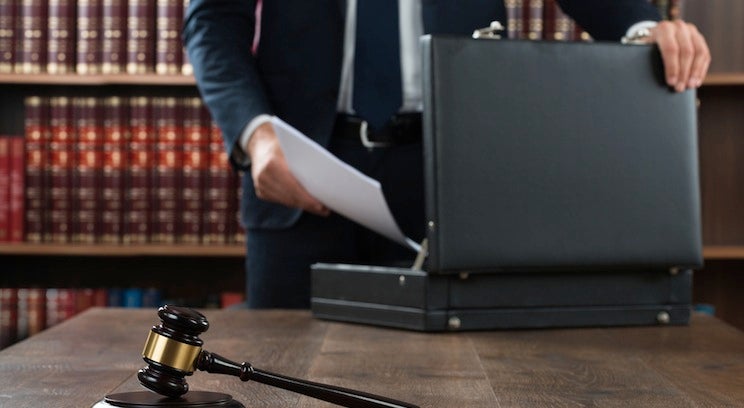
Rarely do in-house counsel step foot in a courtroom, unless they specialize in litigation. Otherwise, depositions and their esoteric rules are usually a foreign matter. The same can be said especially for the rule 30(b)(6) of the US Federal Rules of Civil Procedure (FRCP) — a deposition rule filled with intricate parameters unknown to most in-house counsel. And since few things are worse than showing up to a deposition unprepared, this article delves into the basic and less familiar aspects of the 30(b)(6) deposition to prepare you for a successful day in court.
30(b)(6) depositions are a discovery device that allows the requesting party to designate categories or topics relevant to a case about which the party wants to use to depose a representative from an organization. The corporation (e.g., organization or partnership) then has to designate one or more individuals to testify about the subjects. The rule serves to allow the requesting party to depose a witness even if the witness’ identity is not specifically known. The term 30(b)(6) deposition stems from the procedure covered by rule 30(b)(6). However, there is an equivalent rule in most US state laws. 30(b)(6) depositions are sometimes called “corporate depositions,” or “person most knowledgeable” depositions.
In practical terms, 30(b)(6) depositions require a lot of work and can be very stressful, especially if one side is inadequately prepared. The party requesting the deposition has to ensure the list — incorporated into the deposition notice — covers all the bases, but doesn’t stray into redundancy, repetition, or irrelevancy. Then, the party taking the deposition has to ask intelligent questions at the deposition. These answers reveal the information that’s most pertinent to one or more claims or defenses in the case.
As for the party giving the deposition, they must identify one or more individuals to be the witnesses, and then designate which one will testify about which category. The deposed individuals must decide whether to make objections about the proposed categories and whether a motion for a protective order is appropriate. Then comes the big chore of preparing the witness for the deposition — a difficult matter, especially if the witness has only partial personal knowledge of the subject matter or none at all.
The process is more stressful if you don’t know the parameters, so the following are critical points to keep in mind:
1. The courts have allowed parties to explore the factual bases of claims and defenses, although there is a split in the districts.
Parties have argued, and some courts have agreed, that the factual bases are better discovered by other means. However, other courts have relied on the facts that there is nothing in the FRCP that states parties cannot use 30(b)(6) depositions for this purpose. The rules (F.R.C.P. 26(d)(2)(a), to be precise) state that discovery can be done in any sequence, in holding that parties can explore the factual bases of claims and defenses, so long as they don’t stray into privileged communication or work product. The courts acknowledge that this requires counsel to carefully prepare the witness, but when it comes to 30(b)(6) depositions, “counsel must always do so.” So the moral is to check the rulings for the district in which the deposition is being given, as well as the district in which the case is pending.
2. Counsel can ask questions beyond the scope of the categories in the notice.
This is a tricky one. A party giving a 30(b)(6) deposition is under an obligation to designate a witness or witnesses to testify to the categories in the notice. If a witness cannot adequately address a category for which they have been put forward, the party giving the deposition is subject to sanctions. However, that doesn’t mean that the party taking the deposition has to confine the questions to these categories. Questions that go beyond the categories are considered to be as to the witness’ personal knowledge, and are governed by the general rules of discovery in the FRCP. The corporation giving the deposition does not have the same responsibility with regard to these questions as it does with regards to questions concerning the categories in the notice. The reasoning is that if the party taking the deposition wants to go beyond the categories, but is prohibited from doing so, then the party will just notice the witness’ deposition in the witness’ individual capacity, which is inefficient.
3. A corporation cannot avoid a deposition on the grounds that its documents or answers to interrogatories state its position.
There is nothing in the FRCP that allows a party to substitute one form of discovery in order to avoid another. Also, depositions are favored because they provide “a means to obtain more complete information.”
4. The designated witness does not have to be an employee of the company, does not have to personally review the documents or facts, and does not have to be the person within the corporation most knowledgeable about the categories in question.
The corporation is free to prepare its witnesses in any way it deems appropriate, so long as the witness is ready to give binding answers under oath, and someone acting for the corporation has done the necessary review. That is because the witness is not testifying to their own personal knowledge, but rather, testifying to the knowledge of the corporation. Therefore, information about what the corporation knows can come from someone else within the corporation.
In fact, sometimes a corporation will have to designate someone from outside the corporation to testify about the facts necessary to the corporation’s claims or defenses. A corporation’s duty is to produce a knowledgeable witness, regardless of whether the designee is the corporation’s officer, employee, or a third party.
Although much time is spent in depositions on this issue, neither Rule 30 nor any other rule requires that the witness be the most knowledgeable person within the corporation regarding the category in question. Since there is no requirement that the witness have personal knowledge of the subject matter, requiring the witness to be the most knowledgeable is illogical.
5. A corporation which expects its designee to be unprepared to testify on any relevant, listed topic should advise the requesting party before the deposition begins.
This seems like a matter of simple professional courtesy, but it is an important enough principal to have made it into the case law. Should you find yourself on the receiving end of a motion for sanctions, being open and honest with the opposing party goes far in the court’s judgment, since it serves to lessen the potential cost to, expense of, and inconvenience to your opponent.
6. Facts that a corporate witness learns from counsel are not privileged.
In preparing a corporate witness for the 30(b)(6) deposition, an attorney will often feed the witness facts that come from documents or other witnesses. Perhaps those facts are good for the corporation’s case; perhaps they are not. In either event, the facts themselves are not privileged communication, although the verbatim statements of counsel probably are privileged.
Keep in mind that what you don’t know will hurt you. But hopefully this advice will help you avoid the most gut-wrenching situation: the realization, in the middle of a deposition, that you don’t know what you’re doing. Instead of painful side-glances between you and your witness (if you are defending a deposition), or (if you are taking a deposition) the smug “gotcha” look of opposing counsel, your view of the courtroom won’t seem as daunting now that you’re better prepared (But please read QBE Insurance).
References
See JPMorgan Chase Bank v. Liberty Mutual Ins. Co., 209 F.R.D. 361 (S.D.N.Y. 2002).
See Radian Asset Assurance Inc. v. College of the Christian Brothers of New Mexico, (N.M. 2011); and U.S. Equal Opportunity Commission v. Caesars Entertainment, Inc., 237 F.R.D. 428 (D. Nev. 2006).
Radian, at 692.
See King v. Pratt and Whitney, a Div. of United Technologies Corp., 161 F.R.D. 475 (S.D.Fl. 1995).
See Great American Insurance Company of New York v. Vargas Const. Co., Inc., 251 F.R.D. (D.Nv. 2008).
Marker v. Union Fidelity Life Insurance, 125 F.R.D. 121, 126 (M.D.N.C. 1989).
QBE, supra.
See Ecclesiastes 9:10-11-12, Inc. v. LMC Holding Co., 497 F.3d 1135 (10th Cir. 2007). This case involved the failure of the parties to secure the deposition of John Z. DeLorean.
See QBE Ins. Corp., supra, and PPM Fin., Inc. v. Norandal USA, Inc., 392 F 3d. 889 (7th Cir. 2004).
See Calzaturficio S.C.A.R.P.A. s.p.a. v. Fabiano Shoe Co., Inc., 201 F.R.D. 33 (D.Mass. 2001).
See Great American, supra.




